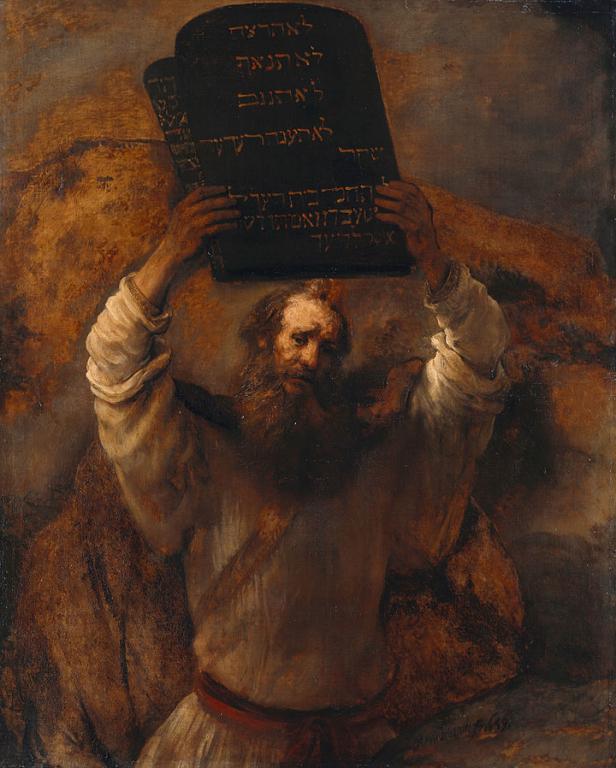
On a cursory reading of the Law and Prophets, one may be tempted to think of God as a cosmic killjoy and his commands as real downers. All the Bible’s talk of sin might come across as a real drag. But that’s only if we create a god from a Moralistic Therapeutic Deistic perspective, where the deity is a “divine butler” or “cosmic therapist,” to reference Christian Smith’s study of MTD.
Moses and the biblical Prophets did not see God and the Law in such negative terms. To the contrary, we find just the opposite assessment. Take, for example, Deuteronomy 4, where Moses exhorts the people of Israel to obey God’s Word:
See, just as the Lord my God has charged me, I now teach you statutes and ordinances for you to observe in the land that you are about to enter and occupy. You must observe them diligently, for this will show your wisdom and discernment to the peoples, who, when they hear all these statutes, will say, “Surely this great nation is a wise and discerning people!” For what other great nation has a god so near to it as the Lord our God is whenever we call to him? And what other great nation has statutes and ordinances as just as this entire law that I am setting before you today? But take care and watch yourselves closely, so as neither to forget the things that your eyes have seen nor to let them slip from your mind all the days of your life; make them known to your children and your children’s children…. (Deuteronomy 4:5-9; NRSV)
John Steinbeck seems to have viewed the matter similarly. In Travels with Charley in Search of America, Steinbeck reflects on having visited a “John Knox church” in Vermont one Sunday morning at the outset of his cross-country sojourn. There he heard a fire-and-brimstone message. Steinbeck never struck me as a very religious person, just humane. So, his reflection might surprise his readership:
It is our practice now, at least in the large cities, to find from our psychiatric priesthood that our sins aren’t really sins at all but accidents that are set in motion by forces beyond our control. . . . For some years now God has been a pal to us, practicing togetherness, and that causes the same emptiness a father does playing softball with his son. But this Vermont God cared enough about me to go to a lot of trouble kicking the hell out of me. He put my sins in a new perspective. Whereas they had been small and mean and nasty and best forgotten, this minister gave them some size and bloom and dignity. I hadn’t been thinking very well of myself for some years, but if my sins had this dimension there was some pride left. I wasn’t a naughty child but a first rate sinner, and I was going to catch it (John Steinbeck, Travels with Charley in Search of America {New York: Penguin Books, 1962}, pages 60–61).
We may not appreciate some of Steinbeck’s language like “kicking the hell out of me,” but please note what precedes it: the God in question “cared enough about me to go to a lot of trouble…” God cared about Steinbeck, so he would not let him off the hook. Moreover, the God who judged Steinbeck gave his sins “some size and bloom and dignity.” As a result, Steinbeck confesses that he felt better as a result of God’s judgment and that he had some remnant of pride left to his name.
It is also worth noting that God gives us laws so we are not left guessing as to what God desires for our lives. As with Steinbeck’s account of the “Vermont God,” he could see his sins clearly and “in a new perspective.” Contrary to the Canaanite deities or Kafka’s Trial, we are not left guessing as to what we’ve done wrong. Contrary to the MTD priesthood, we are not left guessing as to whether our offenses are really offensive to God. Indeed, they are. God gives us laws as a divine mercy so that we can know God intimately and experience the fullness of life in his will, not simply to hold us accountable. However, with such a high calling of desired intimacy comes responsibility. Without responsibility, we lose our dignity. God takes us and our sins seriously, so much so that he judges sin, so much so that he bears our sin for us, as Jesus is the judge who is judged on our behalf, which Karl Barth developed in Church Dogmatics, IV.1, §59.2, “The Judge Judged in Our Place.” So, let’s take our sins seriously so that we do not lose sight of our dignity as responsible human agents and so that we take all the more seriously our Savior.
None of the preceding remarks should lead us to lose sight of the much-welcome understanding of structural evil and social conditioning that plagues us as humans. But we should not allow the repudiation of “miserable sinner” caricatures to lead us to throw out the baby with the dirty bathwater either. As Marguerite Schuster said, “…loss of the category of sin at the individual level more surely robs us of dignity of hope than does the most punishing ‘miserable sinner’ theology of another age (Marguerite Shuster, The Fall and Sin: What We Have Become As Sinners {Grand Rapids: Eerdmans, 2003}, page 101).
So, when you and I sin, let’s sin with dignity by taking responsibility, repenting, and returning in faith to God through Jesus for renewal (1 John 1:9).












